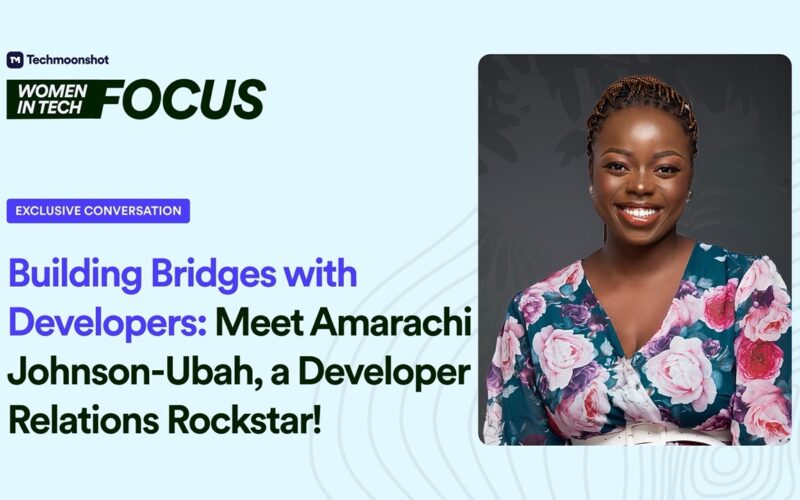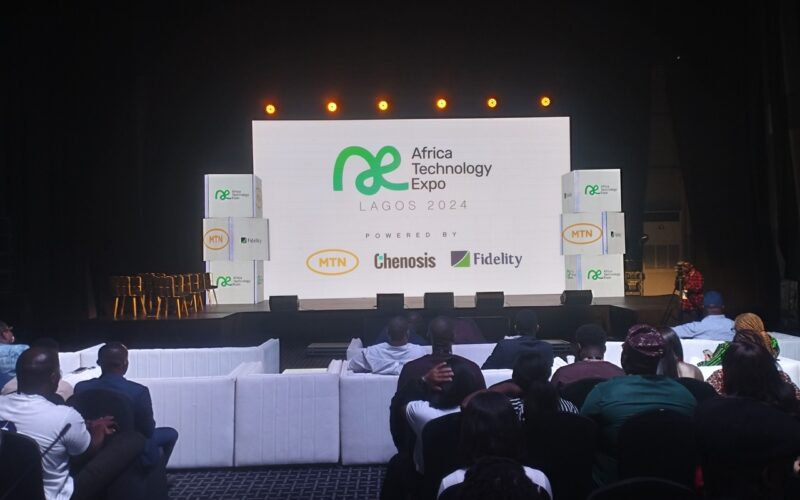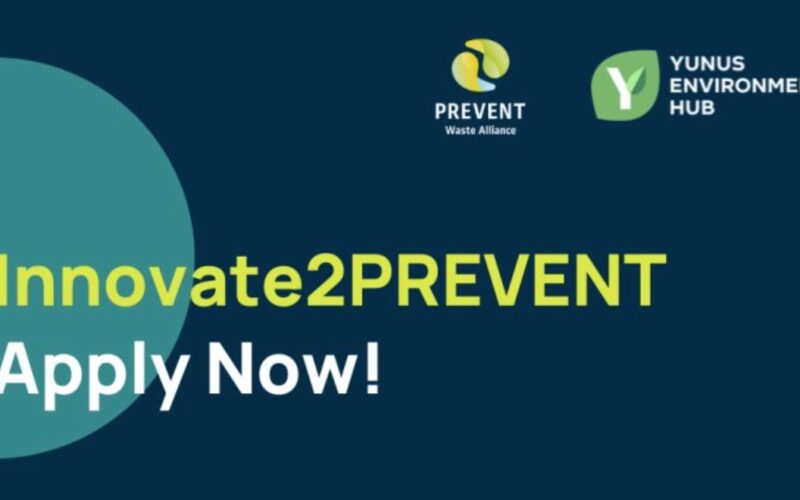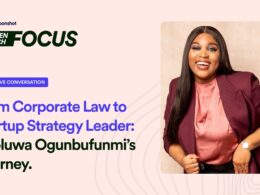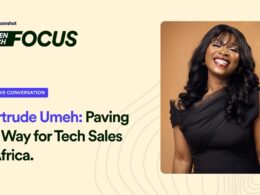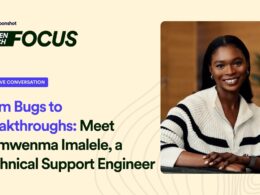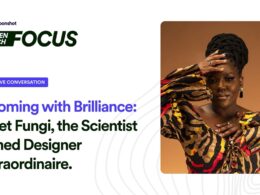Amarachi Johnson-Ubah is a distinguished first-class graduate with a Computer Science degree from Michael Okpara University of Agriculture, Umudike. Currently serving as a Community Operations Manager at ConsenSys, the leading blockchain software company working at the forefront of the decentralized web, she is deeply involved in fostering the growth and adoption of web3 technologies.
Amarachi’s journey into developer relations stemmed from her profound passion for volunteering and community empowerment. Her commitment to leveraging technology to uplift community members has been a driving force in her career, enabling her to bridge the gap between technology and societal impact effectively. Amarachi shared how she started her journey in tech and what keeps her going.
Can we get to know you?
I am Amarachi Johnson-Ubah. I currently manage community operations within the developer relations team at Consensys – the leading web3 company. Previously, I worked as a developer community manager at Consensys Mesh. My work centers on designing and executing different programs and projects to build and empower developer and open-source communities. I am passionate about education, youth, and women’s empowerment and have expressed this through volunteering for organizations like She Code Africa and my non-profit, EduTrybe.
Outside of work, I love to spend time with my husband and play with my energetic toddler. I also like to see movies sometimes.
How did you get started in Developer Relations, and what drew you to this field?
I usually say that I came into Developer Relations by accident and here is what I mean – I started my tech career as a front-end web developer in 2018, and worked as one for 2 years. While working as a front-end developer, I became interested in community-related roles and volunteered to this effect. This includes volunteering as a social media manager, joining the LoC of tech events, co-leading communities like ForLoop Aba, speaking at events, etc. Shortly after that, I joined Open Source Community Africa as a social media community manager responsible for the content and social media for the inaugural Open Source Festival 2020.
After pulling off an outstanding event, with over 1000 attendees and hundreds of UGC at the event, I got the opportunity to join the team at She Code Africa as a volunteer community manager. This was the turning point for my career because not long after I joined She Code Africa, I figured I could make a career out of this. But I wasn’t sure about the next steps, so I spoke to Ada. She encouraged me to pursue it, and here we are.
Can you explain what Developer Relations (DevRel) is and why it’s important in the tech industry?
Developer relations is a field in tech that simply fosters and builds relationships between a tech company and its developer community (users/customers). We’ve heard over and over that traditional marketing doesn’t just sit well with developers. Traditional marketing in the sense of, polishing products and overemphasizing its benefits, with polished grammar and compelling offers.
Developers instead, like to be part of a group, with a sense of belonging, using helpful products they like, from companies they like and trust, and in turn helping others achieve their goals too. This is one of the things that a developer relations team caters for.
Developer relations isn’t just one role, for larger teams with bigger budgets, developer relations can be a team, comprising of roles such as Developer Advocate, Developer Community Manager, Community Operations Manager, Developer Evangelist, and DevRel Engineers. Each of these roles is different yet intertwined, to ensure that the developers who use a company’s product, are successful in using them. In most companies, the developer relations team is generally grouped under marketing.
Did you have any role models or mentors who influenced your career Path?
A lot. At the onset of my career, seeing ladies like Ire Aderinokun and Moyin was such an inspiration to me. People like Prosper, Perrie, and Didicodes, showed me what’s possible, and that it was possible to go global, even from Aba.
But the people who have played the most significant parts in my career are Ada Nduka Oyom and Samson Goddy. I can never tell the story of my career without mentioning them, and their organizations – She Code Africa and Open Source Community Africa.
Can you tell us about your educational background and any relevant certifications you’ve obtained so far?
I hold a First-class (Hons.) Computer Science degree from the Michael Okpara University of Agriculture Umudike. I have taken several courses, from the FreeCodeCamp frontend web development courses, to the CMX community management course, but the latest is the Google Professional Project Management Course on Coursera.
Read also: Demystifying Startup Law: Contracts, Fundraising & More with Rosemond Phil-Othihiwa.
What challenges did you face as you progressed in your tech career and how did you overcome them?
The major problem I faced was my shyness about being perceived as a Jack of all trades, master of none. Before I became a community manager, I tried so many things, because I knew that front-end web development wasn’t a sustainable path for me. I pivoted to product design, taught kids coding and digital skills, and went into technical writing.
I also became a freelance web designer. So when I wanted to pivot to community management, I was afraid of being perceived as “confused” by people, and it wasn’t until I spoke to Ada that I gained the courage to not box myself into anything and to keep trying until I found my path.
And then came the job hunting part…this one made me almost question all my choices, lol, but I was able to overcome through the help of a good and kind community. I can’t overemphasize the need to join a tech community as a tech person. I saw people who shared the same struggles with me, so it made the problem a lot easier to pull through.
What does a typical day look like for you as a Community Operations Manager?
One month ago, I started a new role as a Community Operations Manager, and I’ve spent a significant amount of time onboarding—learning about the company, and my new team, and arranging 1:1 meetings to get to know my teammates.
I’ve also hit the ground running on a couple of programs and for the past 2 weeks, a typical day for me has involved, checking and responding to emails and Slack messages, reviewing my todos for the day based on the previous, participating in a series of meetings, taking company-wide trainings, and following up on and executing on tasks within the team.
What are some of the biggest challenges you face as a DevRel, and how do you address them?
For each new role within Devrel, comes the feeling of starting afresh as no two companies I’ve worked at have ever been the same, or come with the same responsibilities. So I’ve had to learn on the go and embrace a child-like mindset comfortable to be a beginner every once in a while.
Of course, it does get a lot easier as I’ve improved in asking questions, seeking feedback, collaborating with teammates, and taking ownership of my roles. But yeah, having to learn new concepts and coming to terms with new ecosystems with each new role comes with its imposter, and that’s one of the challenges I’ve faced.
What are some common misconceptions people have about DevRel?
Some people think that developer relations is core marketing. While I agree that the roles involve promoting products and building brand awareness among developers and should tie into the company-wide marketing goals, it goes much deeper.
It’s about fostering genuine relationships, understanding developer needs, and providing them with valuable resources and support. Another misconception people have is that devrels have to be extroverts. Despite being introverted to the core, I still manage to get my job done.
What advice would you give to someone aspiring to become a Community Operations Manager?
Your tech career isn’t linear. Mine wasn’t. But if there’s a goal you have, start working towards it already without waiting for anyone to hand it to you. Take courses, volunteer, write, speak, and prepare for the opportunity so that when it arrives, you’ll grab it with prepared hands, and deliver perfectly.
If you could give one piece of advice to your younger self, what would it be?
Everything adds up in the end — the courses, volunteering, boot camps, random hobbies, books, and networks built. Right now, it may seem like everything doesn’t quite fit together, but eventually, you will understand and appreciate the value of passing through all those processes.
Finally, what resources (books, podcasts, networks, etc.) would you recommend to aspiring Community Managers?
I created this repository filled with resources for aspiring community managers. Feel free to check it out: https://github.com/emmanuellar/Community-Management-Resources
It’s a pleasure talking to you Amarachi.
It is a pleasure talking to you as well.






